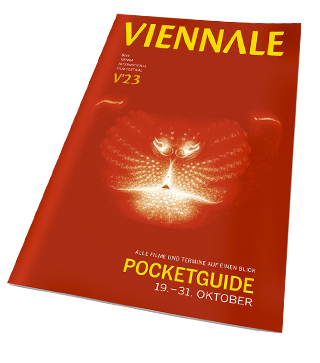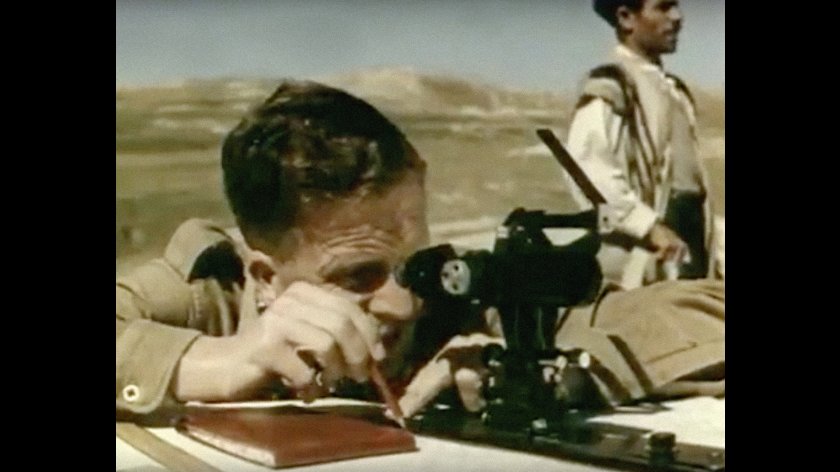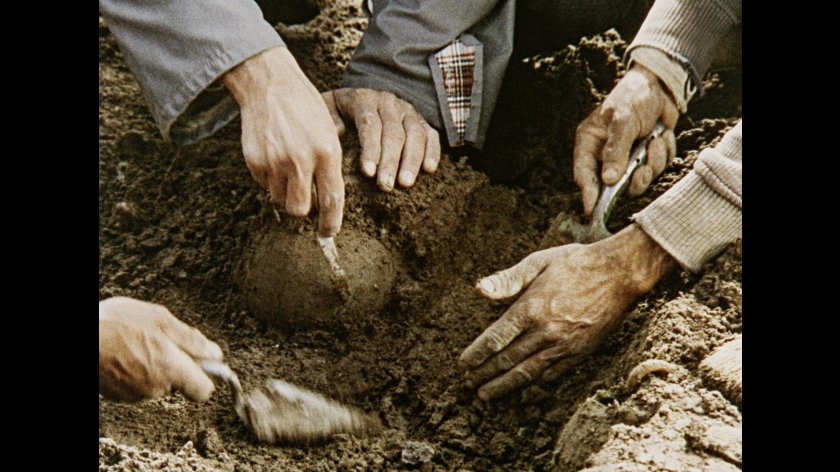Khesht va ayeneh
Brick And Mirror
Im Taxi. Neonreklame vor schwarzem Himmel. Aus dem Radio ein Krimi: Eine Leiche soll verbrannt werden. Dann steigt eine Frau in den Wagen und lässt sich in eine verlassene Gegend bringen. Als sie in der Dunkelheit verschwunden ist, bemerkt der Fahrer, dass sie ein Baby zurückgelassen hat. Er rennt ihr schreiend hinterher, kommt zu einer Ruine, wo die Verstoßenen dieser Erde Unterschlupf gefunden haben. Er will das Kind loswerden, in der Bar, auf der Polizeistation, im Gericht, im Waisenhaus. Schließlich bringen seine Geliebte und er das Kind in seine Wohnung. Er hat Angst vor den nachbarlichen Blicken. Sie aber fürchtet sich vor der Dunkelheit – und vor seiner Angst. Ein jazziger Film. Durch und durch. (Katja Wiederspahn)
In Anwesenheit von Ehsan Khoshbakht (Kurator).
Mit großem Dank an die Cineteca di Bologna für das Zustandekommen des Programms.
Iranian cinema’s first true modern masterpiece is a Dostoyevskian exploration of fear and responsibility, the tale of a Tehran cab driver’s search for the mother of an abandoned baby. Production began in the spring of 1963 with a small crew of five, and without a finished script.The only written part – the driver and the woman in the ruins – became the basis for the first shoot. This was followed by improvised scenes in the vegetable market of Tehran. When the camera lens broke during the shooting of a scene in the Palace of Justice, the production was delayed. On June 5, 1963, while the crew awaited the shipment of a new lens from France, a protest arose against the arrest of Ayatollah Khomeini. This added to the sense of lurking unrest depicted in the film. With its title alluding to a poem by Attar (“What the old can see in a mudbrick/youth can see in a mirror.”) the film moves between realism and expressionism. It features a very rare use of direct sound in Iranian cinema (the detail emphasised by the lack of any score), which complements the claustrophobic use of widescreen. An unforgettable and bleak image of a society of corrupted morals and widespread alienation, the restored version returns to the director’s original vision, featuring scenes never seen before.
In the presence of Ehsan Khoshbakht (Curator).
We'd like to thank Cineteca di Bologna for making this program possible.
- Zakaria Hashemi
- Akbar Meshkin
- Pari Saberi
- Jamshid Mashayekhi
- Mohammad-Ali Keshavarz
- Manouchehr Farid
- Parviz Fannizadeh
- Ebrahim Golestan
- Soleiman Minassian
- Ebrahim Golestan





